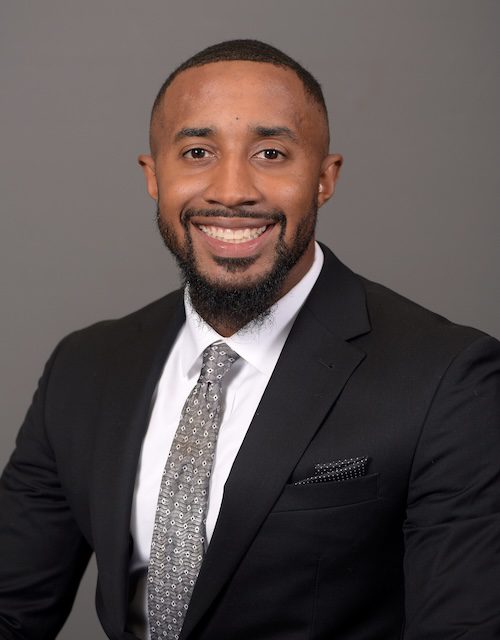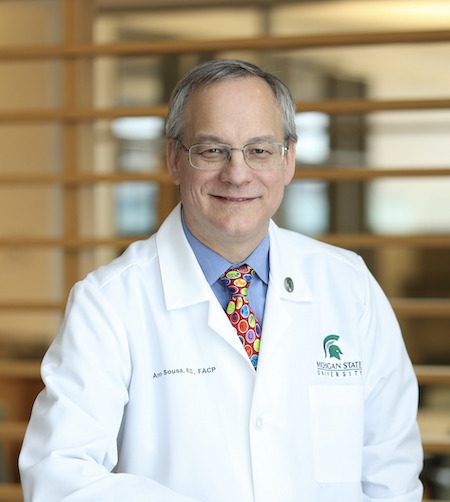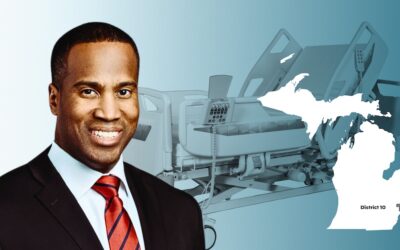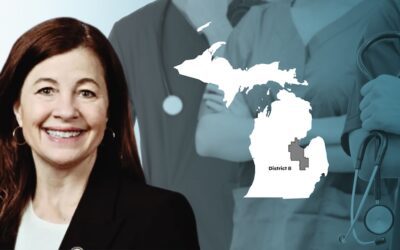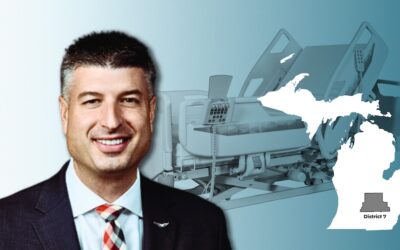
FatCamera/Getty Images Signature
The ‘One Big, Beautiful Bill Act’ strips critical funding from medical students and threatens care in rural and underserved communities.
We never imagined that access to medical education would be under threat for hard working, successful students like Doyle Ford, a third-year medical student at Michigan State University’s College of Human Medicine (CHM).
Doyle grew up in a working-class community, and his journey into medicine has been guided by one principle: service. He is in medical school so he can make health care accessible to underserved communities like the one that raised him. He is particularly passionate about orthopedic surgery, a field where he can help restore mobility and quality of life, especially for patients in under-resourced areas who often lack access to specialized care.
The elimination of the Grad PLUS loan program for new borrowers in 2026-27, as signed into law in the “One Big Beautiful Bill Act”, will make it impossible for students who follow Doyle to walk that same path.
The Grad PLUS loan program is essential to students without the personal or family resources to afford medical school. After exhausting the annual limit of his Direct Unsubsidized Loans, the Grad PLUS loan has been the only way to bridge the remaining financial gap—covering remaining costs of tuition, housing, medical instruments, licensing fees, and even the gas he needs to drive to clinical training sites.
The elimination of Grad PLUS for new borrowers means future students like Doyle—bright, driven individuals without financial backing—may have to give up their aspirations. Ending this program doesn’t just cut off funding; it cuts off potential.
Doyle was drawn to the College of Human Medicine for its community-centered mission. CHM doesn’t just teach medicine—it teaches responsibility. It trains students to be responsive to the needs of underserved populations and to meet people where they are. His education continues a lifelong mission to uplift the communities that shaped him. CHM’s model of community-based medical education, which places students in real-world settings across Michigan, is more than innovative—it’s transformative.
Students who train at CHM are more likely to stay in the community where they train than students who come to the same community from other schools. And, for over thirty years, graduates of CHM’s rural training program disproportionately practice in rural communities like those in which they are educated. Educating students like Doyle in rural and urban communities is how we improve access to health care in our underserved communities.
Without Grad PLUS loans, parental income is one of the most important factors in access to medical school. For students whose families cannot contribute financially, the dream of becoming a physician will become a steep uphill climb. Private loans are very hard to get without family resources, and Grad PLUS loans are often the only means by which students can become doctors. Unlike federal loans, private loans usually require a co-signer, offer fewer borrower protections, come with variable interest rates, and have inflexible repayment options which are hard to manage during the three to seven years when young doctors are poorly paid residents. For someone without financial backing, qualifying for a private loan and then paying it off can be impossible.
Like the parents of most CHM students, Doyle’s parents cannot pay for his education. His success and the care of his future patients should not be dependent on parental wealth. Medical schools and loan programs like Grad PLUS provide an opportunity to reshape generational trajectories. Doyle is an African American man, and his dependence on the Grad PLUS program is the same for many of our students from rural, first-generation families and other students from underserved communities. If the doors of higher education are only open to those with financial privilege, then we are not truly serving our communities—we are filtering out their most promising voices.
Doyle’s path into medicine wasn’t paved with financial ease or privilege—it was built on perseverance, support from programs like Grad PLUS, and an unwavering desire to serve. Every exam he passes, every patient he helps, and every community he serves testifies to what is possible when we invest in students from all walks of life. But this isn’t just his story—it is the story of thousands of students who should start medical school in 2026, if we maintain the path to pay for their education.
Supporting students like Doyle is not charity—it is strategy. It means more doctors in rural clinics, more service in underserved communities, and a healthcare system that provides for and understands the people it serves.
Related: ‘Big, Beautiful Bill’ will cost Michiganders money in 2025—here’s how much, and who’s responsible

A new car vs. health insurance? Average family job-based coverage hits $27K
By Phil Galewitz, KFF Health News With the federal shutdown entering its fourth week, spurred by a stalemate over the cost of health insurance for...

Fighting a health insurance denial? Here are 7 tips to help
By: Lauren Sausser When Sally Nix found out that her health insurance company wouldn’t pay for an expensive, doctor-recommended treatment to ease...
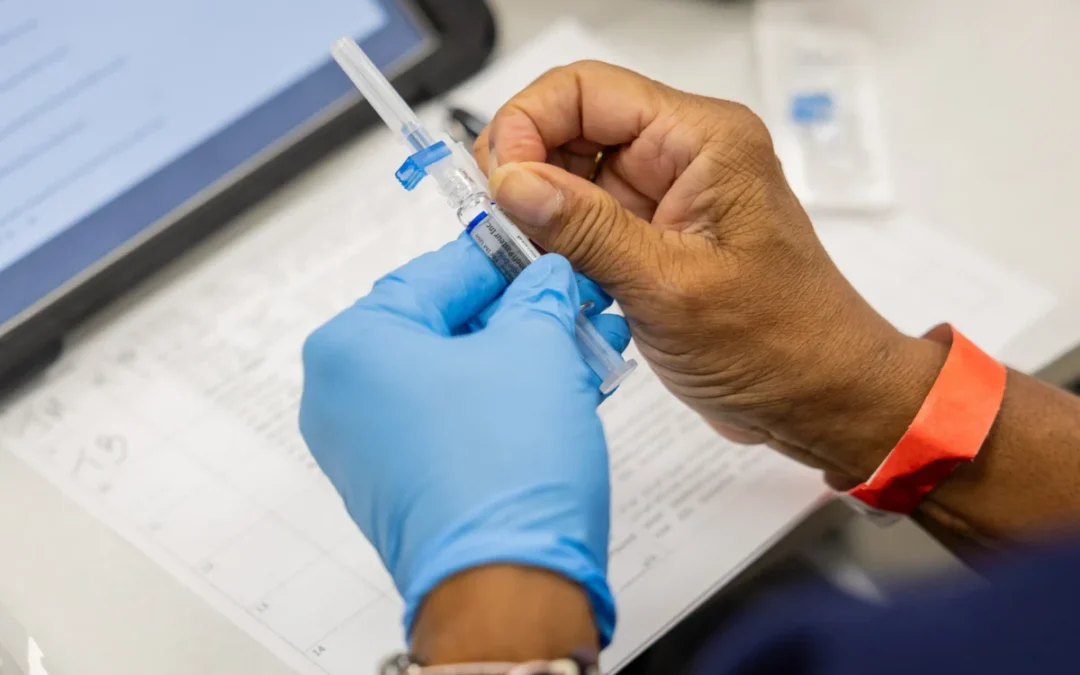
It’s almost flu season. Should you still get a shot, and will insurance cover it?
Madison Czopek, PolitiFact August 18, 2025 For parents of school-aged children, the fall to-do list can seem ever-growing. Buy school supplies. Fill...
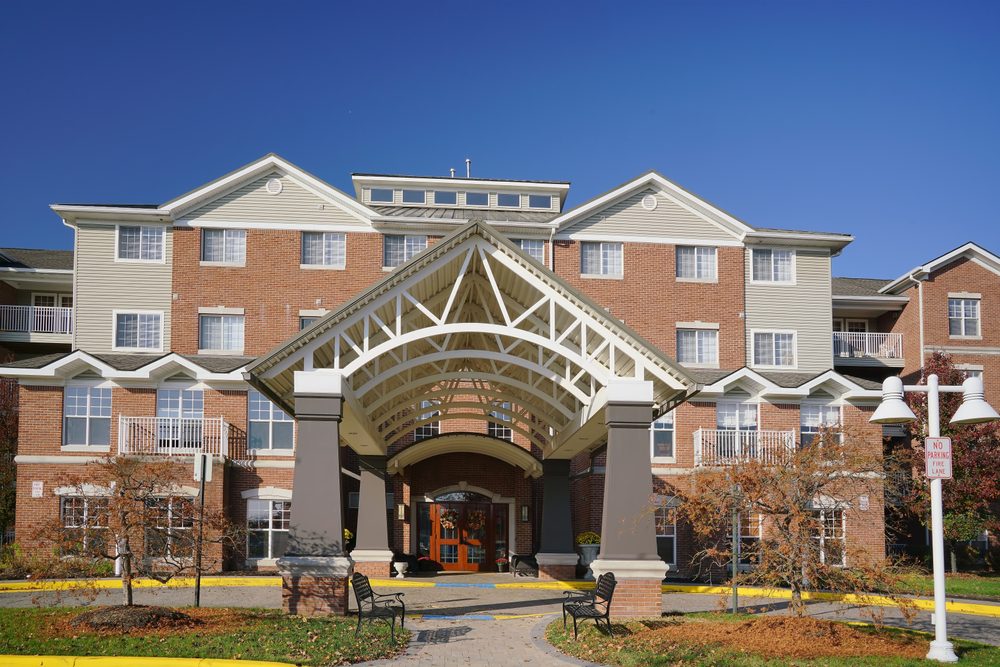
Macomb County households will start losing money this year under Trump’s new spending law. Here’s how much—and who let it happen
Families in Michigan’s 10th Congressional District will shoulder over $500 million in lost funding, while billionaires cash in. In the neighborhoods...

Federal cuts will hit the Flint region hardest. Here’s how much money people there stand to lose—and who tried to stop it
“Everybody will see daily costs go up, like health care, utility bills, and food to help Elon Musk and Jeff Bezos make more money.” Residents in...

